
UltraGrid is a software for video transmission over networks in high quality but with low latency (as low as 83ms). It allows high-definition streams (PAL/NTSC, HD, 2K, 2160p, iHDTV, QuadHD, SuperHD, 4K video). It supports SAGE, OpenGL and SDL displays, DXT-compression per GLSL, JPEG compression via CUDA, permits to utilize HDMI and HD-SDI cards, system audio or JACK sinks, and even provides 3D support.
minor feature: Changes:
added basic nvdec support
added Pipewire screen capture
added Pipewire generic video capture display
added Pipewire audio capture display
GUI: Don't block whole interface when querying UG capabilities
GUI: Better handling of UG crash during capability query
GUI: vuMeter: Redesigned to allow variable channel count
GUI: vuMeter: Added maximum recent peak indicator
swmix: Optionaly specify a custom config file path
holepunch: New 'bind_ip' option
improved deinterlacing quality and performance; support for higher than 8 bit pixel formats
added new deinterlace filters (linear, bob)
added support for Vuikan on macOS (utilizing MoltenVK)
improved support for HW accelerated encoding with QuickSync for Intel GPUs (mainly for higher bit-depth formats)
improved support for AMD GPUs (encoding with AMF, VDPAU decoding, VA-API)
improved Windows screen capture (automaticaly register filter)
Reed-Solomon: support for multiple tiles (notably 3D)
improved AV1 performance by tweaking parameters
video switcher: support for embedded audio switching
added file (libavformat-backed) output
supported 8 bit transcoding in hd-rum-transcode and resize filter
improved DShow capture compatibility with new pixfmts + convert to RGB
added official mac arm64 build
 BSDL c c++ video transmission low-latency sdl x11 opengl glsl streaming audio network
BSDL c c++ video transmission low-latency sdl x11 opengl glsl streaming audio network
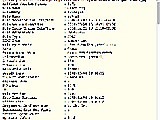
ExifTool is a Perl library and command-line tool for reading and updating
common meta data information in various file formats. Foremost it works on
image files, EXIF, PNG, GPS, IPTC, XMP, JFIF/JPEG, GeoTIFF, ICC Profile, Photoshop IRB,
FlashPix, AFCP, AIFF, DJVU, Postscript, GZIP, OpenDocument, PDF, SVG, OGG and ID3.
It can also edit maker notes of digital (RAW) camera files
from Canon, Casio, FLIR, FujiFilm, GE, HP, JVC/Victor, Kodak, Leaf,
Minolta/Konica-Minolta, Nikon, Nintendo, Olympus/Epson, Panasonic/Leica,
Pentax/Asahi, Phase One, Reconyx, Ricoh, Samsung, Sanyo, Sigma/Foveon and Sony.
minor feature: "Geolocation".
- Added new Geolocation feature and write-only Geolocate tag.
- Added new config file entry to
allow default command-line arguments to be specified.
- Added print conversion for TIFF-EPStandardID.
- Added ability to delete Nextbase information from MP4 videos.
- Decode timed GPS from MP4 videos written by Nextbase software.
- Decode a number of new tags from Nextbase MP4 videos.
- Decode a few new tags from Garmin MP4 videos.
- Extract PreviewJXL images from DNG 1.7 files.
- Generate Validate, ImageDataHash and UserParam tags earlier to allow them to
be used in UserDefined Composite tags.
- Enhanced the -c option so a minus sign in the format specification prints a
signed coordinate without a leading "+" for positive numbers.
- Changed formatting of some Accelerometer tags for consistency.
- Changed behaviour of -ee3 option to do a brute-force scan for freeGPS in the
media data even when referenced by 'gps ' atom.
- Other internal changes to decoding of timed GPS from videos.
- problem were ExifTool would give up on extracting some types of timed
GPS from videos after 100 void - that could cause runtime error when reading Ogg files.
- where some tags from alternate files using the -fileNUM option
weren't generated as requested.
- API Changes:
- Added Geolocation,
GeolocMaxDist and
GeolocMinPop API options.
 Artistic perl exif meta-data
Artistic perl exif meta-data

Opus is a totally open, royalty-free, highly versatile audio codec. Opus is unmatched for interactive speech and music transmission over the Internet, but is also intended for storage and streaming applications. It is standardized by the Internet Engineering Task Force (IETF) as RFC 6716 which incorporated technology from Skype’s SILK codec and Xiph.Org’s CELT codec.
Technology
Opus can handle a wide range of audio applications, including Voice over IP, videoconferencing, in-game chat, and even remote live music performances. It can scale from low bitrate narrowband speech to very high quality stereo music. Supported features are:
Bitrates from 6 kb/s to 510 kb/s
Sampling rates from 8 kHz (narrowband) to 48 kHz (fullband)
Frame sizes from 2.5 ms to 60 ms
Support for both constant bitrate (CBR) and variable bitrate (VBR)
Audio bandwidth from narrowband to fullband
Support for speech and music
Support for mono and stereo
Support for up to 255 channels (multistream frames)
Dynamically adjustable bitrate, audio bandwidth, and frame size
Good loss robustness and packet loss concealment (PLC)
Floating point and fixed-point implementation
minor feature: Opus 1.5 is the first release to make extended use of ML in the encoder and
decoder. You can read all the details in this release demo page.
In summary, major changes since 1.4 include: In addition to the improvements above, this release includes many minor.
Opus 1.5.1 the meson build that was broken in 1.5.. Source code: opus-1.5.1.tar.gz
SHA256: b84610959b8d417b611aa12a22565e0a3732097c6389d19098d844543e340f85
 Mixed audio communication speech c
Mixed audio communication speech c

Geonkick is a free software synthesizer capable of generating a wide range of percussive sounds, including kicks, snares, claps, hi-hats, shakers, and also unique effect sounds.
LV2, VST3, Standalone
16 Instruments, 16 MIDI Keys
16 Stereo Channels
3 Layers/Instrument, 3 Oscillators/Layer
Play, modify & blend samples with synthesis
Save (JSON) & Export (FLAC, WAV, Ogg, SFZ)
major bugfix: Features:
UI DSP: set instrument MIDI channel.
UI DSP: Setting to force all instruments to MIDI a channel.
Presets: new kicks presets by Harald Revery.
Presets: new kicks presets by Oleh Bardiuk.
UI: Add settings tab.
UI/File Browser: bookmark folder option.
UI/Preset Browser: Add custom preset folder.
:
Code: memory corruption when loading presets with samples.
Code: remove the usage of shared pointers from the Geonkick code.
DSP/Filter: the hardclip for high values.
Core GUI/redkite: use list container for observers.
Core GUI/redkite: don't access the interface from the RkObjectImpl.
UI: -inf to int conversion for attack value in the compressor group box.
DSP: uninitialized gkick_envelope_apply_type.
DSP UI: nan/inf values for leveler.
Build system: use funsafe-math-optimizations -fno-math-errno -fno-trapping-math.
Code: error checking on parsing presets.
Improvements:
Presets: update key mapping for kit presets to follow r the general MIDI percussion key map.
Code: move to C++20.
 GNU GPLv3 audio synthesizer
GNU GPLv3 audio synthesizer
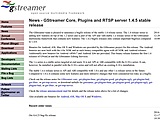
GStreamer is a streaming media framework that allows the construction of graphs of elements which operate on media data. Applications using this library can do anything from real-time sound processing over playing video to capturing audio, video, and even other types of media data. Its architecture allows for adding new data types or processing capabilities simply by installing new plug-ins. GStreamer is the core module, containing libraries, headers, the basic object hierarchy, and a set of media-agnostic core elements.
major feature: - New Discourse forum discourse and Matrix chat space matrix
- New Analytics and Machine Learning abstractions and elements
- Playbin3 and decodebin3 are now stable and the default in gst-play-1.0, GstPlay/GstPlayer
- The va plugin is now preferred over gst-vaapi and has higher ranks
- GstMeta serialization/deserialization and other GstMeta improvements
- New GstMeta for SMPTE ST-291M HANC/VANC Ancillary Data
- New unixfd plugin for efficient 1:N inter-process communication on Linux
- cudaipc source and sink for zero-copy CUDA memory sharing between processes
- New intersink and intersrc elements for 1:N pipeline decoupling within the same process
- Qt5 + Qt6 QML integration improvements including qml6glsrc, qml6glmixer, qml6gloverlay, and qml6d3d11sink elements
- DRM Modifier Support for dmabufs on Linux
- OpenGL, Vulkan and CUDA integration enhancements
- Vulkan H.264 and H.265 video decoders
- RTP stack improvements including new RFC7273 modes and more correct header extension handling in depayloaders
- WebRTC improvements such as support for ICE consent freshness, and a new webrtcsrc element to complement webrtcsink
- WebRTC signallers and webrtcsink implementations for LiveKit and AWS Kinesis Video Streams
- WHIP server source and client sink, and a WHEP source
- Precision Time Protocol (PTP) clock support for Windows and other additions
- Low-Latency HLS (LL-HLS) support and many other HLS and DASH enhancements
- New W3C Media Source Extensions library
- Countless closed caption handling improvements including new cea608mux and cea608tocea708 elements
- Translation support for awstranscriber
- Bayer 10/12/14/16-bit depth support
- MPEG-TS support for asynchronous KLV demuxing and segment seeking, plus various new muxer features
- Capture source and sink for AJA capture and playout cards
- SVT-AV1 and VA-API AV1 encoders, stateless AV1 video decoder
- New uvcsink element for exporting streams as UVC camera
- DirectWrite text rendering plugin for windows
 GNU LGPL multimedia software-development libraries
GNU LGPL multimedia software-development libraries

WirePlumber is a modular session / policy manager for PipeWire and a GObject-based high-level library that wraps PipeWire’s API, providing convenience for writing the daemon’s modules as well as external tools for managing PipeWire.
The WirePlumber daemon implements the session & policy management service. It follows a modular design, having plugins that implement the actual management functionality.
The WirePlumber Library provides API that allows you to extend the WirePlumber daemon, to write management or status tools for PipeWire (apps that don’t do actual media streaming) and to write custom session managers for embedded devices.
minor feature: This is the first release candidate (RC1) of WirePlumber 0.5.0.
Highlights:
- The configuration system has been changed back to load files from the
WirePlumber configuration directories, such as `/etc/wireplumber` and.
` XDG_CONFIG_HOME/wireplumber`, unlike in the pre-releases. This was done.
Because were observed with installations that use a different pre for pipewire and wireplumber. If you had a `wireplumber.conf` file in
`/etc/pipewire` or ` XDG_CONFIG_HOME/pipewire`, you should move it to.
`/etc/wireplumber` or ` XDG_CONFIG_HOME/wireplumber` respectively (!601).
- The internal base directories lookup system now also respects the.
`XDG_CONFIG_DIRS` and `XDG_DATA_DIRS` environment variables, and their.
Default values as per the XDG spec, so it is possible to install
Configuration files also in places like `/etc/xdg/wireplumber` and
Override system-wide data paths (!601)
- `wpctl` now has a `settings` subcommand to show, change and delete.
Settings at runtime. This comes with changes in the `WpSettings` system to
Validate settings using a schema that is defined in the configuration file.
The schema is also exported on a metadata object, so it is available to any.
Client that wants to expose WirePlumber settings (!599, !600)
- The `WpConf` API has changed to not be a singleton and support opening.
Arbitrary config files. The main config file now needs to be opened prior to
Creating a `WpCore` and passed to the core using a property. The core uses
That without letting the underlying `pw_context` open and read the default
`client.conf`. The core also the `WpConf` after all components.
Are loaded, which means all the config loading is done early at startup.
Finally, `WpConf` loads all sections lazily, keeping the underlying files.
Memory mapped until it is and merging them on demand (!601, !606)
Past releases.
 Other audio session-manager policy-manager pipewire c lua
Other audio session-manager policy-manager pipewire c lua

Haxe is an cross-language development toolkit. It implements a modern, high level, strictly typed programming language. Comes with a cross-compiler for multiple target languages (iOS, Android, Java, C++, C#, HTML5, NodeJS, Python, PHP, Lua). It brings along its own standard library, but still provides ways to access each platforms native capabilities.
minor bugfix: General improvements:
All : allow @:using with Class and Enum.
Display : expose list of metadata/defines
:
All : typedef vs. GADT.
All : don't double-throw exceptions
All : some abstract inlining failures
All : JsonPrinter empty parent class
All : dce: clean up operator handling
All : analyzer: deal with unreachable block in binops
All : analyzer: don't recursively check enum values when const propagating
All : analyzer: check for inlined purity meta
Display : errors from parser missing in diagnostics
Display : display services with static extension
Display : display services with safe navigation
hl : hlopt rework try-catch control flow
hl/c : reserved keywords.
Deprecation / future version handling:
All : don't infer string on concat, when using -D haxe-next.
All : handle optional arguments with bind, when using -D haxe-next
Macro : build order vs inheritance, when using -D haxe-next
Macro : deprecate some API from haxe.macro.Compiler
Java/jvm : warn about --java... -D jvm vs --jvm.
 GNU GPL haxe programming-language compiler cross-plattform c c++ hashlink
GNU GPL haxe programming-language compiler cross-plattform c c++ hashlink

JackTrip is a Linux, macOS, or Windows multi-machine audio system used for network music performance over the Internet. It supports any number of channels (as many as the computer/network can handle) of bidirectional, high quality, uncompressed audio signal streaming.
You can use it between any combination of machines e.g., one end using Linux can connect to another using macOS.
Virtual Studio
With JackTrip Virtual Studio, you may sing with your chorus, or jam with your band, online without leaving home. With built-in support for live broadcasting, you can share your sessions on JackTrip Radio. Additionally, Virtual Studio allows you to enhance your performances and bring your music to life utilizing Soundscapes digital signal processing. Musicians have creative control with dozens of audio effects with various reverbs, compression, attack and more, in real-time.
minor bugfix: Date: 2024-03-04
Description:
- (added) New container images for JackTrip hub server.
- Support for audio interfaces on OSX with multiple channels.
- Hub server crashes when trying to rebind ports.
- VS Mode blacklisted Generic Low Latency ASIO Driver.
- VS Mode inconsistent initial connection state.
 Mixed audio music streaming server cpp qml
Mixed audio music streaming server cpp qml

BallroomDJ 4 is a ballroom music player. It is designed to play music the entire evening without intervention. Manage your ballroom dance music and create song lists, automatic playlist and sequenced playlists.
BallroomDJ 4 is the replacement for BallroomDJ.
minor bugfix: 4.6.2 2024-3-4
* Bug Fixes:
* Configure: Display Settings: Dance not allowed for marquee info (crash).
* Conversion: Minor fixes.
* Playlist Management: Fix default value for tag weight.
* Song Selection: Better same-song marks handling.
* Song Selection: Re-work, fix all issues.
* Fix some memory leaks.
* Changes:
* Quick Edit: Add 'Favorite' to the dialog.
 Zlib audio music end-users linux macos windows player ballroom c gtk
Zlib audio music end-users linux macos windows player ballroom c gtk
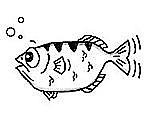
GDB is a source-level debugger for Ada, C, C++, Objective-C, Pascal and many other compiled languages. It can debug running processes on more than a dozen different processor architectures. It's itself ported to most BSD/ and GNU/Linux, Unix and Microsoft Windows systems.
minor feature: PR symtab/31112 (DLL export forwarding is broken)
PR c++/31128 (gdb crashes when trying to print a global variable stub without a running inferior).
PR tdep/31254 ( gdb/tdep, arm FAIL: gdb.threads/staticthreads.exp: up 10).
PR gdb/31256 (Crash with basic 'list.').
PR python/31366 (Frame.static_link() segfaults).
 GNU GPLv3 c c++ debugger software-development
GNU GPLv3 c c++ debugger software-development
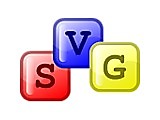
wxSVG is C++ library to for Scalable Vector Graphic (SVG) files. It can create, manipulate and render them using the wxWidgets toolkit.
minor bugfix: * applied ffmpeg5 patch
 WXwindows c++ wxwidgets svg rendering image manipulation
WXwindows c++ wxwidgets svg rendering image manipulation

Poppler is librarified PDF rendering toolkit derived from the Xpdf 3.0 code base. It can utilize X11-independent rendering backends like Cairo, Splash, or Qt4 Arthur. It's not designed for platform-agnosticy, but proper BSD/Linux integration; is used by various PDF applications (Evince, Okular, TeXStudio, pdftotext, Zathura, Xournal, Inkscape), and comes with a set of command-line tools of its own.
major bugfix: :
Core:
Opening some malformed files. Skip drawing image when it has singular matrix. crash on malformed files.
Small internal code cleanup.
Utils:
Pdfdetach: potential directory traversal.
Pdfimages: Enable to print filenames to stdout.
Pdfsig: Add visible name/date when signing an existing form signature field.
 GNU GPL c++ pdf rendering library developers
GNU GPL c++ pdf rendering library developers
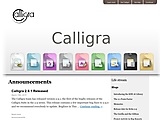
Calligra is an integrated suite of applications that cover office, creative, and management needs. It offers applications on both desktop computers and mobile platforms like tablets and smartphones. OpenDocument Format (ODF) is used, making it compatible with OpenOffice.org, LibreOffice, and Microsoft Office. Calligra Suite contains the following applications: Calligra Words (word processor), Sheets (spreadsheets), Stage (presentations), Flow (diagrams and flowcharts), Kexi (visual database creator), Braindump (note taking), Plan (project management), Krita (drawing), and Karbon (vector graphics).
minor bugfix: * Sheets: Workarounf for Bug 421336 - Sheets crash (sometimes) when loading LO generated files
* Styels: Write correct path to manifest also when styles is not in top level dir
* Guard agains crash if view has no parent
* Include existing documentation for Sheets and Stage.
 GNU GPL kde qt office word-processor spreadsheet presentation flowchart database drawing graphics
GNU GPL kde qt office word-processor spreadsheet presentation flowchart database drawing graphics

A single file transactional database, for direct persist of structs in the Rust language, providing also an advanced query engine and support for complex types.
minor feature: https://structsy.rs/release_0_5.html
 rust database
rust database
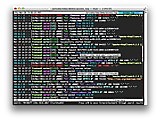
The Logfile Navigator, lnav for short, is a curses-based tool for viewing and analyzing log files. The value added by lnav over text viewers or editors is that it takes advantage of any semantic information that can be gleaned from the log file, such as timestamps and log levels. Using this extra semantic information, lnav can do things like interleaving messages from different files, generate histograms of messages over time, and provide hotkeys for navigating through the file. These features are meant to allow the user to quickly and efficiently focus on problems.
minor feature: Interface changes:
Changed the breadcrumb bar styling to space things out.
More and make the divisions between items clearer.
The `ESC` key can now be used to exit the files/filters.
Configuration panel instead of `q`. This should make
it easier to avoid accidentally exiting lnav.
Added some default help text for the command prompt.
Suggestions are now shown for some commands and can
be accepted by pressing the right arrow key. For.
Example, after typing in `:filter-in` the current
Search term for the view will be suggested (if
One is active).
 BSDL-2 systems administration database logging log analysis site management
BSDL-2 systems administration database logging log analysis site management










